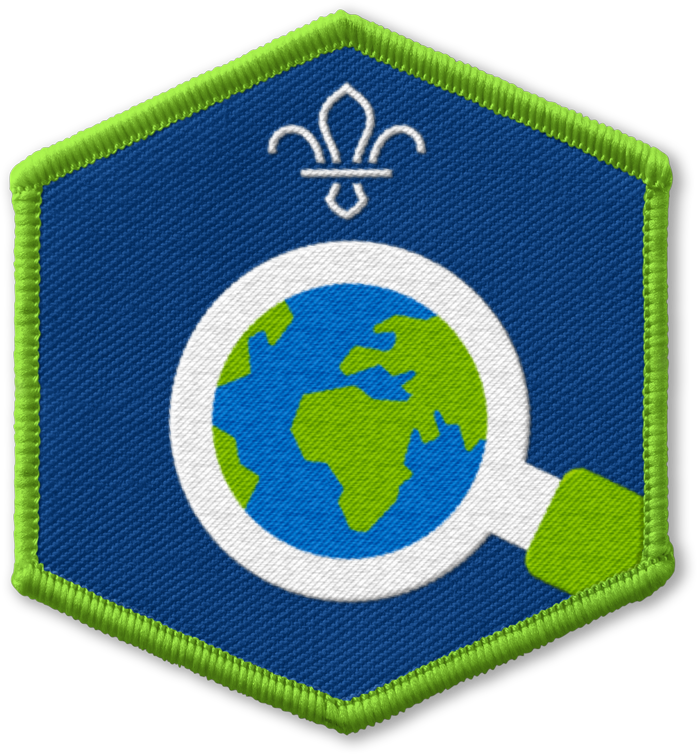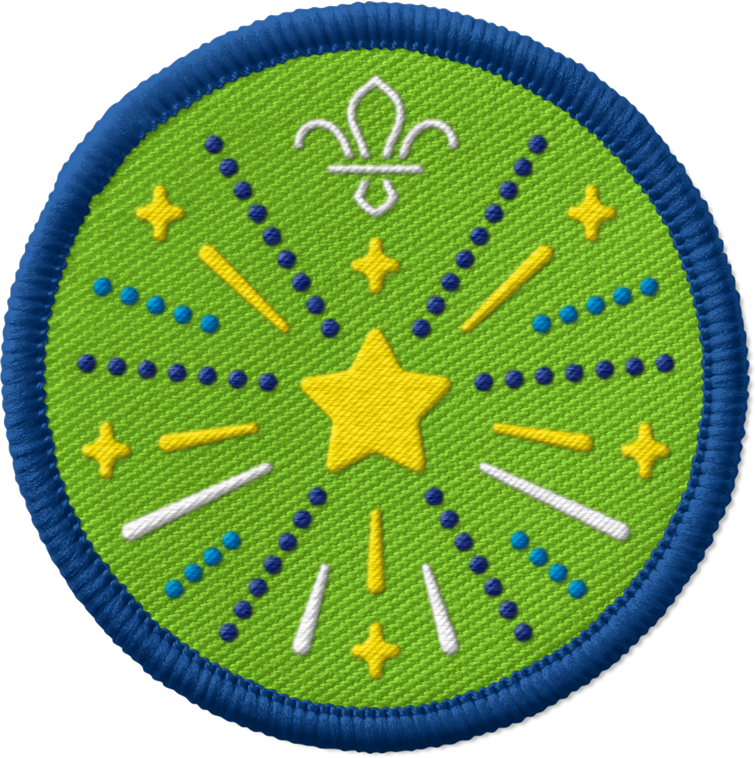Play Punchinella, little fella
Before you begin
- Use the safety checklist to help you plan and risk assess your activity. Additional help to carry out your risk assessment, including examples can be found here. Don’t forget to make sure all young people and adults involved in the activity know how to take part safely.
- Make sure you’ll have enough adult helpers. You may need some parents and carers to help out if you’re short on helpers.
- Make sure you’ve got enough space to play this game – you may need to move things out of the way so everyone has room to stand (and dance) in a circle.

Story time
- Everyone should sit in a circle.
- Someone should read The Deer and their trip to the Market by Chris Allerton. Make sure you save a copy of the story before the session.
- After reading the story, everyone should take some time to reflect on it as a group.
- We’ve included some questions to help you reflect in the pink box below.
- Once you've read the story, try playing the game ‘Punchinella, little fella’.
Delilah was a deer and had a young fawn called Finley. Delilah and Finley went everywhere together: to the park, to the doctors, and to the shops. But today, they were going to the food market.
The market was full of sights, sounds, smells – and lots of people. Finley had never been to the market before and was very excited to explore.
Delilah and Finley moved to the first stall, belonging to Pei Pei the panda. There were lots of foods that Finley had never seen before – all different shapes and colours. Pei Pei offered Finley a crispy golden parcel.
‘Would you like to try a spring roll? They are from my home in China.’
Finley took a long look at the spring roll. He slowly shook his head and said: ‘I don’t think I will like that. I don’t have them at home.’
Finley turned away and moved to the next stall, which was covered in tiny biscuits. This stall was owned by Kai the kangaroo. Kai bounced over, and Finley asked what the biscuits were.
‘These are Anzac wafers,’ Kai explained. ‘They are sweet crunchy biscuits that I learned to make from my mother in Australia. Would you like to try one?’
Finley carefully looked at the Anzac wafers and slowly shook his head again. ‘I don’t think I will like them as I don’t have them at home,’ he said.
Finley moved again to another stall, owned by a fluffy white poodle called Pascal. Before Finley could see what Pascal was selling, he had waggled over.
‘Bonjour, my little friend!’ Pascal barked. ‘Are you hungry? Please try my ratatouille, made from fresh vegetables! I learned to make this at my home in France.’
Finley was a little surprised and quickly said, before hurrying back to Delilah: ‘I don’t think I will like that as I don’t have it at home.’
Finley found Delilah with bags full of food. Finley was very sad. He had gone to the food market and eaten nothing. He wanted to go home.
In the evening, Delilah called Finley down for his dinner. When Finley came to the table he found all the people he had met at the market ready to eat dinner with him. Delilah had invited them so Finley could try all the new food at home.
Finley slowly took a bite out of Pei Pei’s spring roll. Then he nibbled one of Kai’s Anzac wafers. Then he slurped a spoonful of Pascal’s ratatouille. Finley paused, before looking up and smiling.
‘I really liked that,’ he said. ‘Is there any more?’
By Chris Allerton
Black History Month takes place every October in the UK. It started in the United States in 1926. In the UK, Black History Month began in 1987 and is an important opportunity to celebrate and learn about Black history. During this month, schools and communities hold events, activities, and discussions to highlight important figures, such as activists, artists, and leaders. This month is a chance for everyone to appreciate the rich culture and history of Black communities and to understand the impact they have had on our society. However, it’s important to remember that Black history is a part of history that people can (and should) learn about all year round.
This activity has been chosen as it's a traditional Jamaican children's game.
Punchinella, little fella
- As everyone to stand in a circle with one person in the middle.
- Everyone in the circle should clap their hands in time and say ’Punchinella, little fella, what can you do?’
- The person in the middle of the circle should do a short, simple dance move.
- Everyone in the circle should copy the dance move.
- The person in the middle should choose someone else to be in the middle and swap places with them.
- Everyone should keep playing the game until each person has had a chance to be in the middle (or the group loses interest).
Reflection
This game encouraged everyone to be more independent. Hopefully, it also raised people’s self-esteem when they thought of a dance move that everyone else in the group copied.
The Deer and their trip to the Market
- When was the last time you did something you were nervous to do?
- How did trying it out make you feel?
Punchinella, little fella
- Was it difficult to think of a dance move on the spot?
- Was it scary to show a dance move in front of everyone else?
Safety
All activities must be safely managed. You must complete a thorough risk assessment and take appropriate steps to reduce risk. Use the safety checklist to help you plan and risk assess your activity. Always get approval for the activity, and have suitable supervision and an InTouch process.
- Active games
The game area should be free of hazards. Explain the rules of the game clearly and have a clear way to communicate that the game must stop when needed. Take a look at our guidance on running active games safely.
Some people may find it difficult to think of a dance move. Adults should encourage them to do even a small movement, then celebrate their involvement – it’s great when people give it a go.
To make the game more difficult, everyone could make a noise while doing their dance move – then there are two things to copy (a dance move and a noise).
Make sure that everyone can be involved by supporting them to think of a dance move and considering what dance moves are accessible to the group.
All Scout activities should be inclusive and accessible.
Try teaching family and friends new dance moves and see if they can copy them. Can they teach you any new dance moves?
Encourage everyone to think of their own dance moves – if some people are struggling to think of any, a friend or adult could help them come up with an idea.

